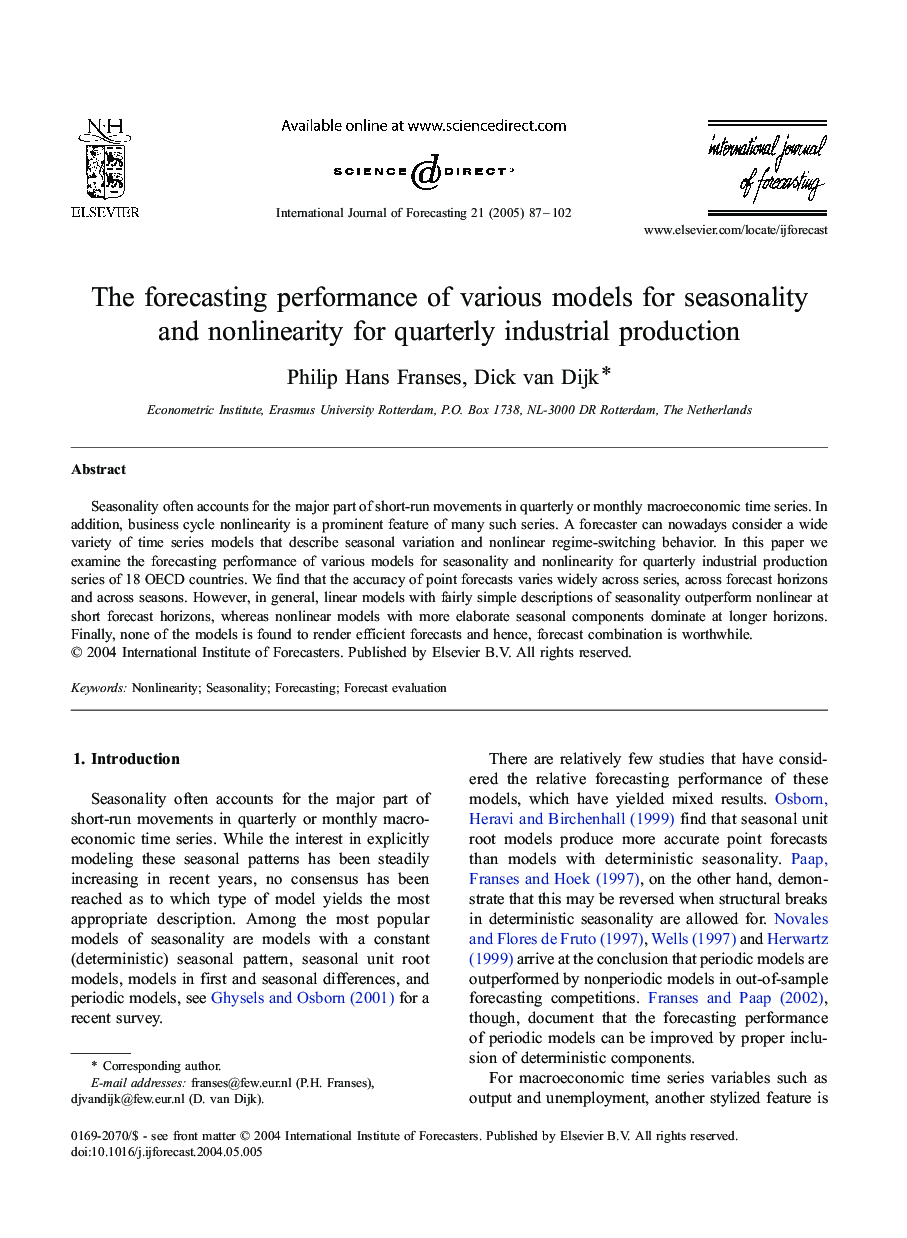| Article ID | Journal | Published Year | Pages | File Type |
|---|---|---|---|---|
| 9732575 | International Journal of Forecasting | 2005 | 16 Pages |
Abstract
Seasonality often accounts for the major part of short-run movements in quarterly or monthly macro economic time series. In addition, business cycle nonlinearity is a prominent feature of many such series. A forecaster can nowadays consider a wide variety of time series models that describe seasonal variation and nonlinear regime-switching behavior. In this paper we examine the forecasting performance of various models for seasonality and nonlinearity for quarterly industrial production series of 18 OECD countries. We find that the accuracy of point forecasts varies widely across series, across forecast horizons and across seasons. However, in general, linear models with fairly simple descriptions of seasonality outperform nonlinear at short forecast horizons, whereas nonlinear models with more elaborate seasonal components dominate at longer horizons. Finally, none of the models is found to render efficient forecasts and hence, forecast combination is worthwhile.
Related Topics
Social Sciences and Humanities
Business, Management and Accounting
Business and International Management
Authors
Philip Hans Franses, Dick van Dijk,
